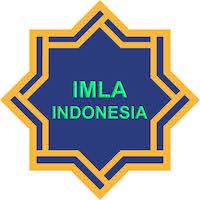Analysis of Arabic Language Learning on Youtube Channel “Arab Podcasts” Based on Perrenialism Philosophy Perspective
DOI:
https://doi.org/10.18592/jams.v12i1.15007Keywords:
Arabic Language Learning, Arab Podcasts, Perennialism PhilosophyAbstract
This article aims to describe Arabic language learning on the YouTube channel “Arab Podcasts” based on the perspective of perennialism philosophy. This research used qualitative approach and descriptive method. Primary data sources come from Arabic language learning videos on the “Arab Podcasts” YouTube channel, while the secondary data sources come from books, scientific articles, and documents that are related to the perennialism philosophy. The data collection technique is based on listening and note-taking method. The data analysis technique used consists of three stages including data reduction, data display, and conclusion drawing. The result of this study is the discovery of conformity between the concept of Arabic language learning on the YouTube channel “ Arab Podcasts ” with the learning principles of perennialism philosophy.References
Adela, Dhea. Buku Ajar Filsafat Pendidikan. Sukabumi: NUSAPUTRA PRESS, 2021.
‘Adila Venia Nuzulul. “Konsep Pembelajaran Bahasa Arab Berbasis Pendekatan Humanistik Perspektif Paulo Freire.” Shaut al-Arabiyah, Vol. 10, No. 1, 2022.
Al-Baha’i, M. Fairuzabady. Filsafat Pendidikan. Pemalang: Penerbit Nem, 2017.
Assegaf, Abd. Rachman. Filsafat Pendidikan Islam. Jakarta: PT. Raja Grafindo Persada, 2011.
Creswell, John W. Research Design: Qualitative, Quantitative, and Mixed Methods Approaches. London: Sage Publications, 2013.
Gera, Irega Gelly. “Analisis Pendidikan Bahasa Arab Berdasarkan Perspektif Filsafat Perenialisme”. Bashrah, Vol. 3, No. 1, 2023.
Gutek, Gerald L. Philosophical and Ideological Perspectives on Education. New Jersey: Prentice Hall Inc., 1988.
Handayani, Sri dan Syafi’i. “Pemanfaatan Video Animasi Youtube untuk Meningkatkan Pengembangan Maharah Istima’ Bahasa Arab.” Tatsqify, Vol. 3, No. 2, 2022.
Hasibuan, Dori Omas dkk,. “Pendidikan Perennialisme: Membangun Pemikiran Kritis di Era Digital”. JCSR: Journal of Creative Student Research Vol. 2, No. 6, 2024.
Idi, Jalaludin dan Abdullah. Filsafat Pendidikan. Yogyakarta: Ar-Ruzz Media, 2007.
Iriyani, Sri Astuti dkk, Pengantar Filsafat Pendidikan. Ponorogo: Uwais Inspirasi Indonesia, 2023.
Maulidiyah, Fadlilatul dan Inayatul Mufidah. “Pembelajaran Bahasa Arab Berbasis Media Sosial Tiktok Berdasarkan Filsafat Ilmu Secara Ontologi”. in Proceedings of the International Conference on Islamic Civilization and Humanities, 2024, 801-809.
Miles, Matthew B. and A Michael Huberman, Qualitative Data Analysis. California: SAGE Publications, 1994.
Mulyana, Rohmat. Mengartikulaksikan Pendidikan Nilai. Bandung: Alfabeta, 2004.
Setyawan, Cahya Edi dan Khaerul Anwar. “Peran Bahasa Arab dalam Pendidikan Islam Urgensitas Menghadapi Revolusi Industri 4.0.” Lahjah Arabiyah, Vol. 1, No. 1, 2020.
Sugiyono, Metode Penelitian Kualitatif, Kuantitatif, dan R&D. Bandung: Alfabeta, 2016.
Taqiyudin, Muhammad. “Implementasi Aliran Filsafat Perenialisme dalam Pengembangan Pendidikan Islam”. Edukasi Islami, Vol. 12, No. 1, 2023.
Downloads
Published
Issue
Section
License
Copyright (c) 2025 Suhaeni Rahmawati, Dedy Wahyudin

This work is licensed under a Creative Commons Attribution 4.0 International License.
Authors who publish with this journal agree to the following terms:
- Authors retain copyright and grant the journal right of first publication with the work simultaneously licensed under a Creative Commons Attribution License that allows others to share the work with an acknowledgement of the work's authorship and initial publication in this journal.
- Authors are able to enter into separate, additional contractual arrangements for the non-exclusive distribution of the journal's published version of the work (e.g., post it to an institutional repository or publish it in a book), with an acknowledgement of its initial publication in this journal.
- Authors are permitted and encouraged to post their work online (e.g., in institutional repositories or on their website) after the submission process, as it can lead to productive exchanges, as well as earlier and greater citation of published work.






